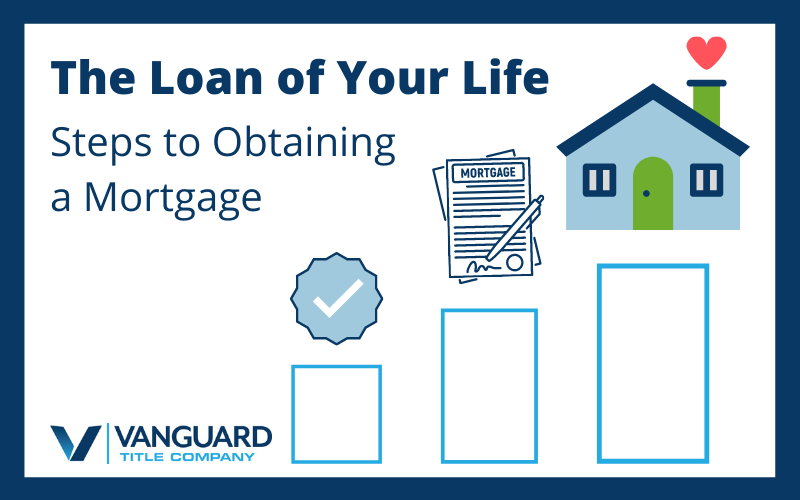By Christina Kass
With home ownership comes what’s usually the largest debt obligation of your life — a mortgage. Obtaining for a mortgage can be intimidating, especially for first-time homebuyers. However, arming yourself with information can demystify the process.
A mortgage is a type of loan used to purchase a home or other real estate. The borrower agrees to pay back the loan plus interest over time. The property itself is the collateral.
The cost of a mortgage depends on several factors, including:
- type of loan
- term
- interest rate charged by the lender
Here’s what you need to know when obtaining a mortgage.
Get Prequalified and Preapproved for Obtaining a Mortgage
Taking some preliminary steps before you starting your home search will pay off later. That’s because a prequalification lets you informally provide an overview of your finances, income, and debts to a lender. Then, the lender determines if you qualify for a mortgage and estimates your loan amount.
The next step is the preapproval process. During the preapproval process, a lender pulls your credit report and verifies your income, assets, and debts. Once you are preapproved, your lender issues a preapproval letter. The preapproval letter shows real estate agents and sellers that you’re a serious home buyer.
Getting preapproved is increasingly important in today’s sellers’ market, according to Ken Dunneback, senior mortgage consultant with MiMutual Mortgage in Livonia, Michigan.
“Right now, demand for available homes far exceeds supply,” says Dunneback. “In order for a buyer to increase the chances of getting an offer accepted, their offer must be accompanied by a preapproval letter.”
Dunneback urges buyers to be educated on the numbers involved when buying a home. This includes:
- down payment
- costs associated with appraisals
- credit reports
- escrow accounts
“An educated buyer is a prepared buyer,” says Dunneback. “Nobody likes to be surprised when purchasing a house.”
Check Your Credit Score and Shop Interest Rates
It is a good idea to check your credit score before reaching out to a lender. Your credit score will impact the type of loan you qualify for and your interest rate. Most lenders use a baseline credit score to approve or deny mortgage applicants.
A credit score of at least 620 is recommended for conventional mortgages. Scores in the 700s or above translating to the lowest interest rates. Further, lenders can offer direction to improve your score if necessary.
“Your credit score is vitally important in all aspects of purchasing a home,” says Lynn Dillon, mortgage consultant at Genisys Credit Union Mortgage in Auburn Hills, Michigan. “It affects everything from the interest rate on the note itself, to how costly the private mortgage insurance premium will be, and even the amount of your homeowner’s insurance policy.”
Determine What Loan Type Works Best for You When Obtaining a Mortgage
There is no “one size fits all” approach to finding the perfect home. Further, there are several mortgage types available to suit borrowers’ diverse needs.
Some of the most common types of loans include:
1 – Conventional Fixed Rate Mortgage
The interest rate remains the same throughout the life of the loan. Conventional Fixed Rate Mortgages come in terms of 30, 15, or 10 years. These are the most popular and predictable of all home loans.
2 – Adjustable Rate Mortgage (ARM)
The interest rate changes based on a specific schedule after a fixed period at the beginning of the loan. ARMs are best for homebuyers who plan to have the mortgage for a short period of time.
3 – FHA Mortgage
A home loan insured by the Federal Housing Administration and designed for borrowers of more modest means. A FHA Mortgage is for those who put down a lower down payment or people who have lower credit scores, going as low as 500.
In addition to the above three types of mortgages, some buyers may consider:
- Loans backed by the Department of Veterans Affairs
- Loans backed by the U.S. Department of Agriculture
- Balloon Mortgages — loans with an initial period of low to no monthly payments, at the end of which the borrower pays the full balance in a lump sum
Get Your Documents in Order Before Obtaining a Mortgage
No matter what type of loan works best for you, you’ll need to round up the documents and data needed for your application. Required documents include:
- Employment – Your employer, job title, salary and length of time employed
- Income – Two years of W-2s (or profits and losses if self-employed), pensions, Social Security, child support, and alimony
- Assets – Your bank accounts, real property, investments, and proceeds from the sale of your current home
- Debts – Your current mortgage, other liens that have monthly payments, credit cards, car loans, child support, and alimony
- Property – Your estimated closing date, size and type of home, expected sales price, real estate taxes, and homeowner’s association dues
- Financial Blemishes (if applicable) – Any bankruptcies, collections, foreclosures or delinquencies
Partner with Trusted Professionals
The details of the mortgage process can seem overwhelming. Fortunately, you don’t have to go it alone. Vanguard Title or your Realtor® can help you find a reputable mortgage lender. Then, your loan officer will guide you through the mortgage process. Further, when it’s time to close on your new home, you can count on Vanguard to make it seamless and easy.
From pre-qualification to closing, being prepared for each phase in the mortgage process helps create a smooth homebuying experience.

